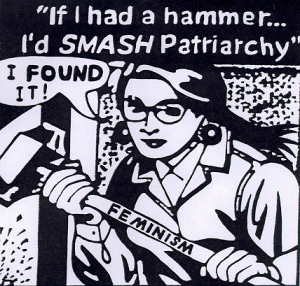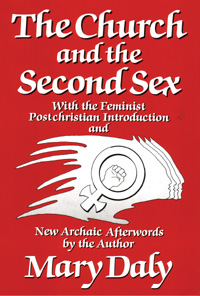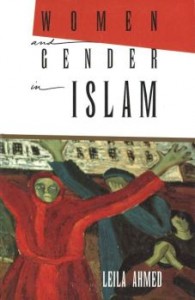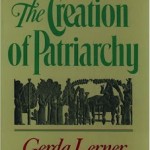 Joumana Haddad wrote a provocative piece for NOW News last week titled “Islamic Feminism: Stockholm Syndrome” in which she claims that any woman who claims to be a feminist and religious (Muslim, Jewish, or Christian specifically) is identifying with her captor, her hijacker, her tyrannical overlord.
Joumana Haddad wrote a provocative piece for NOW News last week titled “Islamic Feminism: Stockholm Syndrome” in which she claims that any woman who claims to be a feminist and religious (Muslim, Jewish, or Christian specifically) is identifying with her captor, her hijacker, her tyrannical overlord.
To be clear, this is not a new claim.
It is also a claim that radically simplifies the problem and dramatically underestimates women and men working for justice.
I spent a good amount of my graduate career immersed in the writing and work of Mary Daly, second wave radical feminist philosopher, and wrote my second book partly about her political and theological work. So, I get deep sustained criticism of monotheistic religion. I respect it enormously. I understand beyond measure the legitimacy of feminist criticism of patriarchal religion. To some extent, in fact, I agree with it.
But when Daly and Haddad and others simply throw their hands up in disgust and declare a religion essentially and permanently incompatible with feminism, they miss the point.
 The point is that religions change – always have and always will. Tell me of another human-constructed institution (education, law, state, family, even the military) that feminists have determined to be permanently incompatible with equality and justice?
The point is that religions change – always have and always will. Tell me of another human-constructed institution (education, law, state, family, even the military) that feminists have determined to be permanently incompatible with equality and justice?
So why admit defeat in the face of religion?
Haddad makes a few key points I want to respond to at some length.
First:
“All monotheist religious texts are inherently misogynic and against gender equality, however we cherry pick them. They compete on enforcing patriarchal standards—humiliating women, classifying them as men’s property and oppressing them. Taking one verse from here or there in order to prove that this or that religion promotes women as equal to men is a futile exercise, to say the least.”
She focuses here on scripture – the Quran or the Bible. It seems there is a longer discussion to be had about various ways in which Muslims, Jews, and Christians use their sacred texts. There are (dare I say always have been) different methods of reading and understanding them, and there are (always have been?) different ways of viewing their authority. Even her own mention of the Quran as “the verbatim word of God” and Islam as “solidly resistant to reform” misses a more complex understanding of the history of that very text and the complicated historical emergence of Islam – each discussed at length by Amina Wadud in Quran and Woman, and Leila Ahmed in Women and Gender in Islam.
But, though I teach a course on Women in Islam, I am no expert in Islam. Let me focus on Haddad’s claims about monotheistic religions more broadly. Her very next point, in fact, makes a claim about individual adherence to a religion:
“First and foremost, you cannot embrace a religion selectively. You don’t use one or two ingredients and overlook the rest in order to fabricate for yourself a comfortable co-existence between your self-respect and your inability to admit the obvious.”
Of course you can. And we do.
 Every single religious person and institution out there is selective in what they emphasize, ignore, champion, and fight about from their texts and traditions. Pentecostal Christians emphasize the second chapter of Acts to define how you know a person has received the Spirit. If any person in my Lutheran congregation started speaking in tongues, no one would know what to do with them. Conservative Christians who apply some verses in Leviticus directly to current debates on marriage equality and gay civil rights still eat shellfish and clothing made from mixed fibers. And women as pastors, priests, and bishops? Well, it depends on who you ask.
Every single religious person and institution out there is selective in what they emphasize, ignore, champion, and fight about from their texts and traditions. Pentecostal Christians emphasize the second chapter of Acts to define how you know a person has received the Spirit. If any person in my Lutheran congregation started speaking in tongues, no one would know what to do with them. Conservative Christians who apply some verses in Leviticus directly to current debates on marriage equality and gay civil rights still eat shellfish and clothing made from mixed fibers. And women as pastors, priests, and bishops? Well, it depends on who you ask.
So when Haddad claims, regarding Judaism, Christianity, and Islam, that “these three religions have the same attitude toward women: oppressive and unfair,” I want her to be more specific. Which versions of these three religions? At what point in history? In which culture?
Her most sweeping and damning claim, and one with which I do not completely disagree, is this:
“Not only are the monotheist religions biased against women, but they are, all three of them, racist, sexist, homophobic, merciless, bloody, and biased against humanity, freedom and human rights. They are even biased against common sense. They are ManMade and PowerMade institutions that aim at controlling people and their lives. All of them have, throughout their history, used wars and terrorism to promote their objectives and survive the secular forces that threaten their continued existence, not to mention that their exclusivism has frequently fostered violence against those that are considered outsiders.”
This has all been true of these religions. For some versions of each, it still is. My question is simply this: Why assume that monotheistic religions will always be this way? Or, if we want to bring historians into the conversation, why assume they always have been? While Haddad thinks it is an admission of defeat and ignorance to work for change from within the religions, as many of us do, I think it is more defeatist and ignorant to paint millennia of diverse global religious communities with one brush. It’s absolutist: Either you are with us or against us.
 The thing is … if they are “ManMade,” to use Haddad’s word, they are no better or worse than the men or women making them. Why not make them better, and lessen the violence and hatred that they can and have spread?
The thing is … if they are “ManMade,” to use Haddad’s word, they are no better or worse than the men or women making them. Why not make them better, and lessen the violence and hatred that they can and have spread?
Haddad argues that anyone working for change from within a religion cannot call herself a feminist. I’m dubious of this claim for a lot of reasons, not the least of which is several generations of women and men doing just that. Additionally, that Haddad turns to the dictionary for a definition of feminism doesn’t do much to bolster her argument. Feminism, she (and Webster!?) say is first and finally about equality.
OK. Great. A little basic, but let’s just go with it for the sake of the argument. So, how is this incompatible with monotheism? Haddad never makes that clear. She says:
“Monotheism and feminism inevitably exclude each other, unless you are deliberately turning a blind eye and being choosy in your understanding of both. In that case, you could very well be self haters: hostages that defend and love their captors.”
It is this last image, the one that she picks up on for the title of the piece and tagline about “love thy hijackers” that I make my final objection. Haddad clearly thinks very little of the creative and critical work being done by Jewish feminists like Judith Plaskow, Marcia Falk and Susannah Heschel, Christian feminists and womanists like Serene Jones, Delores Williams, Elisabeth Schussler Fiorenza, and Monica Coleman, Muslim feminists and women like Amina Wadud, Ingrid Mattson, Leila Ahmed, Fatima Mernissi.
A bunch of brainwashed women? Ignorant? Blind? Captive to hijackers?
You could say a lot of critical things about the work of these and so many other women and men working for gender justice in monotheistic religions.
Including me. But I am not a hostage.
By ascribing this role to anyone working for justice and equality from within a flawed institution, Joumana Haddad commits the absolutist error of which she has just accused the religious and puts those women in the very submissive position that she decries.
















